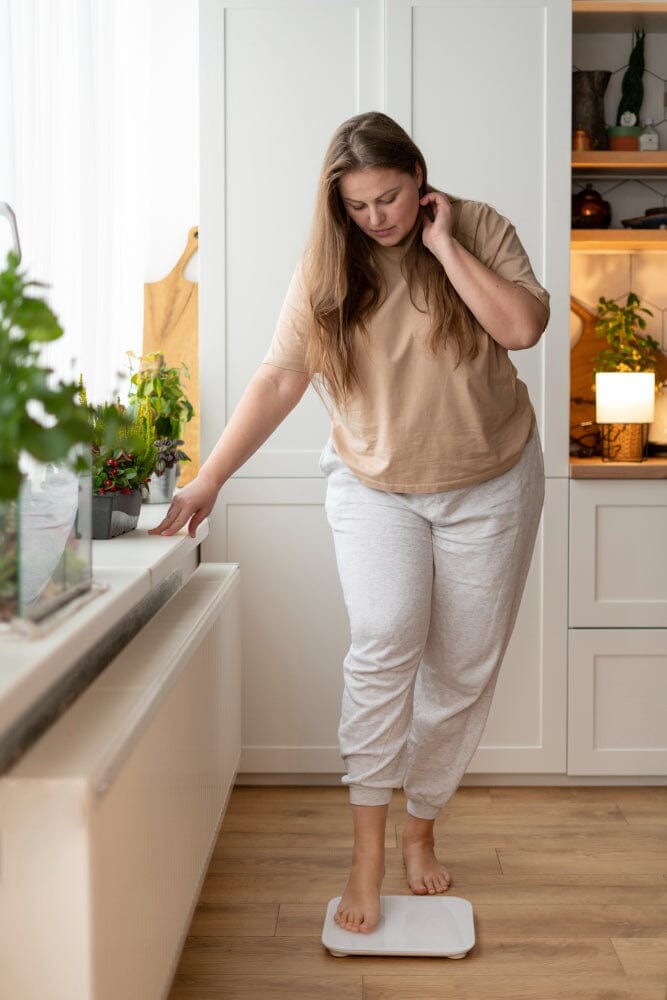
Are Celiac Disease and Weight Gain related? How do I treat Celiac?
Time to read 3 min
Time to read 3 min
Yes, there are certain reasons why celiac disease and weight gain are connected as there may be changes in how your body absorb nutrients. You may also experience weight gain due to a flare-up or temporary bloating when you come into contact with gluten.
With celiac disease being largely an autoimmune disease, excessive weight gain is one of the main effects of the condition. Following gluten free diets when you have celiac can significantly improve symptoms and enhance your overall sense of wellbeing.
You should also focus on nutrient dense foods, gluten free whole grains, and generally eating gluten free foods when dining outdoors. People with celiac disease need to take additional precautions to ensure that they're not experiencing the symptoms.
It's also important to note that some people may lose weight or experience significant weight loss as a result of the disease. This is due to a lack of nutrient absorption, low vitality, and low strength, or possibly due to anaemia.
These are some of the first few symptoms that you should be careful of when monitoring celiac disease. These symptoms can vary in severity and pain, based on different intolerances, immune reaction, etc.
Many of these signs are as per the Celiac disease foundation, which can be a helpful reference when learning more about the condition. You should get a complete blood test done to check why you are gaining weight prior to linking it to celiac disease or other medical conditions.
You can experience bloating as a key sign of the condition, which can lead to abdominal pain as well. This is a common sign right after consumption of food and can last throughout the day.
IBS and celiac disease both can give you diarrhoea as a core symptom. You can experience a loss of nutrient absorption if you have chronic diarrhoea from managing a condition.
This is a unique type of pain that is persistent and doesn't go away in a few minutes. This type of abdominal localized pain can be there for hours after consuming a meal.
You can feel sensitivity and irritation to the touch of the region around your belly. Some people with non celiac gluten sensitivity can also experience this symptom.
You may experience signs of chronic fatigue, which can feel like you have permanent low-energy. You can feel drained throughout the day, and need medication to keep you going.
In some cases, the lack of nutrient absorption and issues with healthy red blood cell production can lead to anaemia. This can be tested with a blood test, with signs being similar to that of celiac disease such as weakness, fatigue, pain, etc.
Doctors recommend a range of interventions to help treat celiac disease in patients. You can also learn how to manage the condition long-term and take the right precautions and measures when you are dealing with gluten.
You should focus on a complete gluten free diet, and ensure that you don't eat gluten accidently as well. You can track your hidden sources of gluten as well, such as beer, certain sauces, packaged goods, etc. You can ease your gluten sensitivity over time, by cutting it out completely during the first few stages.
There may be nutritional absorption related issues when you have celiac, which is why supplementation is recommended along with a strict gluten free diet. Even in overweight or obese patients there may be certain vital vitamins and minerals that aren't being metabolized properly.
If you have a high body mass index or are looking to even gain weight while managing celiac disease, you should consume natural foods. They contain many of the vitamins, minerals, and micronutrients that we need, as well as giving us the natural fibre required for digestive improvement.
You can take anti inflammatory medication when it is prescribed by your doctor. These can help with inflammation and many of the symptoms associated with the condition. You can also take anti-spasm medication to reduce the pain associated with involuntary spasms.
You can take pain killers and other pain relief medication that can help with improving overall wellbeing of the person. This is especially important in the case of children and older people to ensure that there are no secondary complications.
* Medical Disclaimer - The following information is for educational purposes only. No information provided on this website, including text, graphic, and images, are intended as substitutes for professional medical advice. Please consult with your doctor about specific medical advice pertaining to your condition(s).

